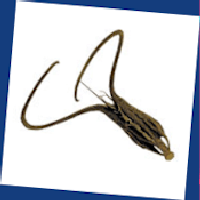Advantages and Uses of Devil’s Claw
Published:
With a name such as devil’s claw, do you expect this herb to do any good? To get to know devil’s claw better, here is a quick lowdown on what devil’s claw is all about as well as the health benefits it is packed with.
First, the scientific name of devil’s claw is Harpagophytum, which is Greek for “hook plant”. The devil’s claw is a plant that is native to Africa and is characterized by fruits covered with hooks. It is also sometimes called grapple plant or wood spider. In herbal medicine, it is the roots and tubers of devil’s claw are usually dried and grounded for use. The effects of devil’s claw on different conditions have been cited in several journals of natural medicine. Most studies about the devil’s claw point to the components iridoid glycosides, harpagosides, trans-coumaroyl harpagide, plant sterols, and procumbide as the reasons for the plant’s anti-inflammatory properties. Devil’s claw seems to be powerful, even in small doses. Studies on devil’s claw have shown that a 50 to 100mg dose is enough to minimize arthritis pain, knee pain and lower back pain. Some even show that devil’s claw can be as effective other non-steroidal anti-inflammatory drugs taken for pain.
Here are some of the Possible Benefits of Devil’s Claw:
- Reduces inflammation
- Commonly used to treat arthritis, osteoarthritis and atherosclerosis
- Possibly useful for chronic muscle pain, back pain and chest pain
- Useful for gout and tendinitis
- May be used for gastrointestinal upset and heartburn
- Can be effective for migraine and fever
- Possibly useful for menstrual problems
- Perhaps it could lead to loss of appetite
- May alleviate symptoms of bladder and kidney disease
- May be effective for skin injuries and some allergic reactions
As with any other herbs and medications, devil’s claw also comes with safety precautions.
- It is not suggested for children, pregnant or breastfeeding women
- It is not for people with high blood pressure, low blood pressure and other heart-related diseases
- It is not suitable for those with diabetes, gallstones and peptic ulcer
- It may affect medication that are changed by the liver such as Valim, Prilosex, Soma, Viracept, Prevacid, Protonix, Cataflam, Celebrex, Ibuprofen, Lovastatin, Ketoconazole, Glucotrol and several NSAIDs.
- Although there isn’t that much published clinical trials yet, devil’s claw is said to possibly affect medications of P-glycoprotein substrates (i.e. Imodium, Propulsid, Allegra), H2 blockers (i.e. Zantac Pepcid and Tagamet) and Proton pump inhibitors (i.e. Aciphex and Nexium)
- Devil’s Claw has high safety rates and low reports of side effects. The possible side effects include headaches, ringing in the ears, nausea, vomiting, skin reactions, and changes in blood pressure.
The devil’s claw can be thought of as one of those things we do not particularly find aesthetically pleasing, but if it has all those benefits - maybe it is worth the try? Lucky for us, there are supplements that make use of devil’s claw so we do not have to prepare it the old-fashioned way.

